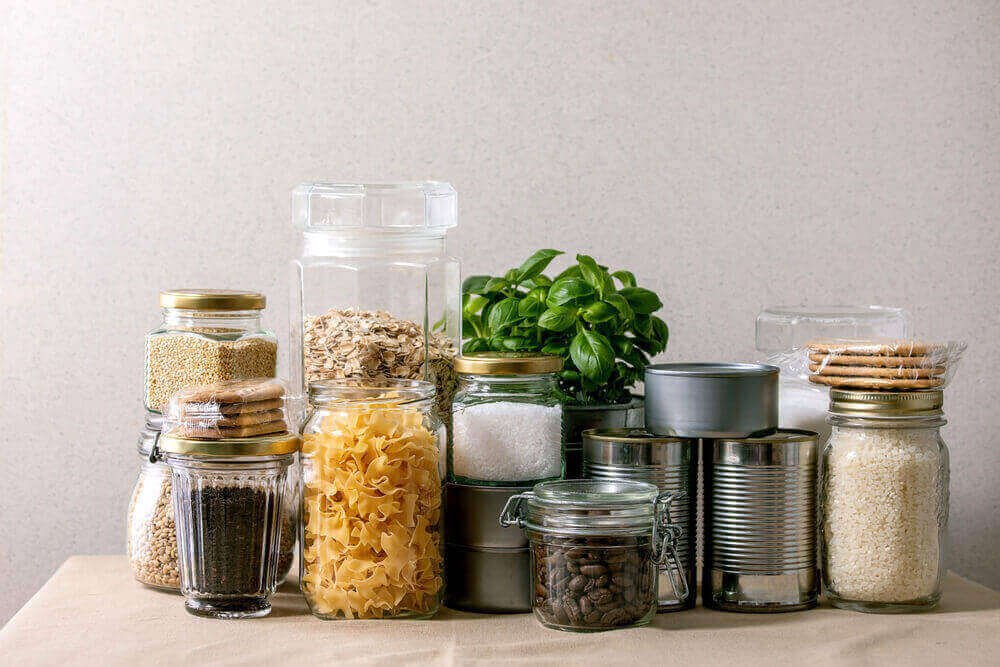It may not sound like something you feel you or your family will ever need to do but unless you can predict the future and any unfortunate events that are likely to occur (and isn’t there always something creeping in) then having a backup supply of survival gear and food is not that bad of an idea if you ask me.
I always have extra of the usual groceries in the home, not because we are looking to keep surplus supplies on hand but because I have a husband and 2 children who eat like a vacuum and horse combined. I do, however, understand the want or need to be ‘ready’ in case there are extreme weather conditions or pandemics that prevent you from leaving the house and you need to eat and nourish your family.
Getting started is not as daunting or as tricky as you may think, so we will look at a few options with handy tips and advice along the way to get you going and off on the right foot.
What is prepping?
People who have been pickling and curing food items date back way further than we realize, as early as the 1930s, and it may not necessarily be in the context of the apocalypse but there is a mutual understanding of being ‘prepared.’
Those individuals, now more commonly referred to as ‘preppers’ instill certain and specific methods to the task, and in this way, they can cover all angles where they feel they may need back up.
These practices include for the most part the food category but can evolve into learning new survival skills, added knowledge of long-life food items, to building underground or ‘survival’ shelters. The main objective when embarking on this ‘adventure’ is to become self-sufficient, not needing to rely on anyone for as long as possible.
Finding supplies.
There are no specific or specialized shops that emphasize solely on stock and supplies for prepping, the great thing that people don’t realize is that it is the everyday products, with a few tweaks, that make the task possible.
Going down to the local supermarket and taking a moment to read expiry dates and contents ingredients on long-life products is as simple as that. Doing your research and homework into the foods that can sit on the shelf for months and even years and then finding those in the shops is not as stressful as others make it out to be.
We can talk about the options all day, but food crisis prepping is an exercise we can all do with a bit of effort and planning, and there are no excuses as to why not. We sit and plan a holiday or family vacation for weeks at a time which lasts a maximum of 10 days if you’re lucky, with prepping it is a small effort to give for a long-term effect. What have you got to lose?
The most and biggest expense of the project is going to be storage. The place or area where you’ll ideally construct some shelving or packaging system to easily access your supplies, but then buying the jars and containers in which to store the food is what can add up financially depending on how early you begin the process.
You may save each jar you buy of the regular everyday items and groceries and then convert it for a prep jar to add to your growing collection.
3 ways in which to effectively begin the prep process.
- Start. This sounds obvious, but people feel inadequate or inexperienced to tackle the job and give up before even starting. Small steps and building will make it more manageable and effective. Start with what you know and work your way up the list. Think back to when there was say a power outage or snowstorm what did you need or use.
- Water. The food we can manage without for as long as a week or more but water is a must. Store as much as you can safely away from prying eyes (people act crazy in stressful times, the last thing you need adding to your plate is a robbery for water of all things). Purchase water purifiers in case you need to source water outside such as rivers or lakes and learn how to do so safely.
See here https://www.outdoorlife.com/survival-skills-ways-to-purify-water/ for safe and effective ways you can do this when the trouble hits the fan and it’s the difference between life and death.
- Identification. We see countless horror stories of unidentified persons with no credentials or personal information wandering around looking for a familiar face, place all the passports, insurance documents, and recent family pics together and in a quick grab and go place. We can’t be searching for papers when the place is filled with panic.
The main aim of the game is to take it one day and one step at a time, as you progress your knowledge and necessities will take shape and you will see clearly what will and can work for your family in an emergency.

